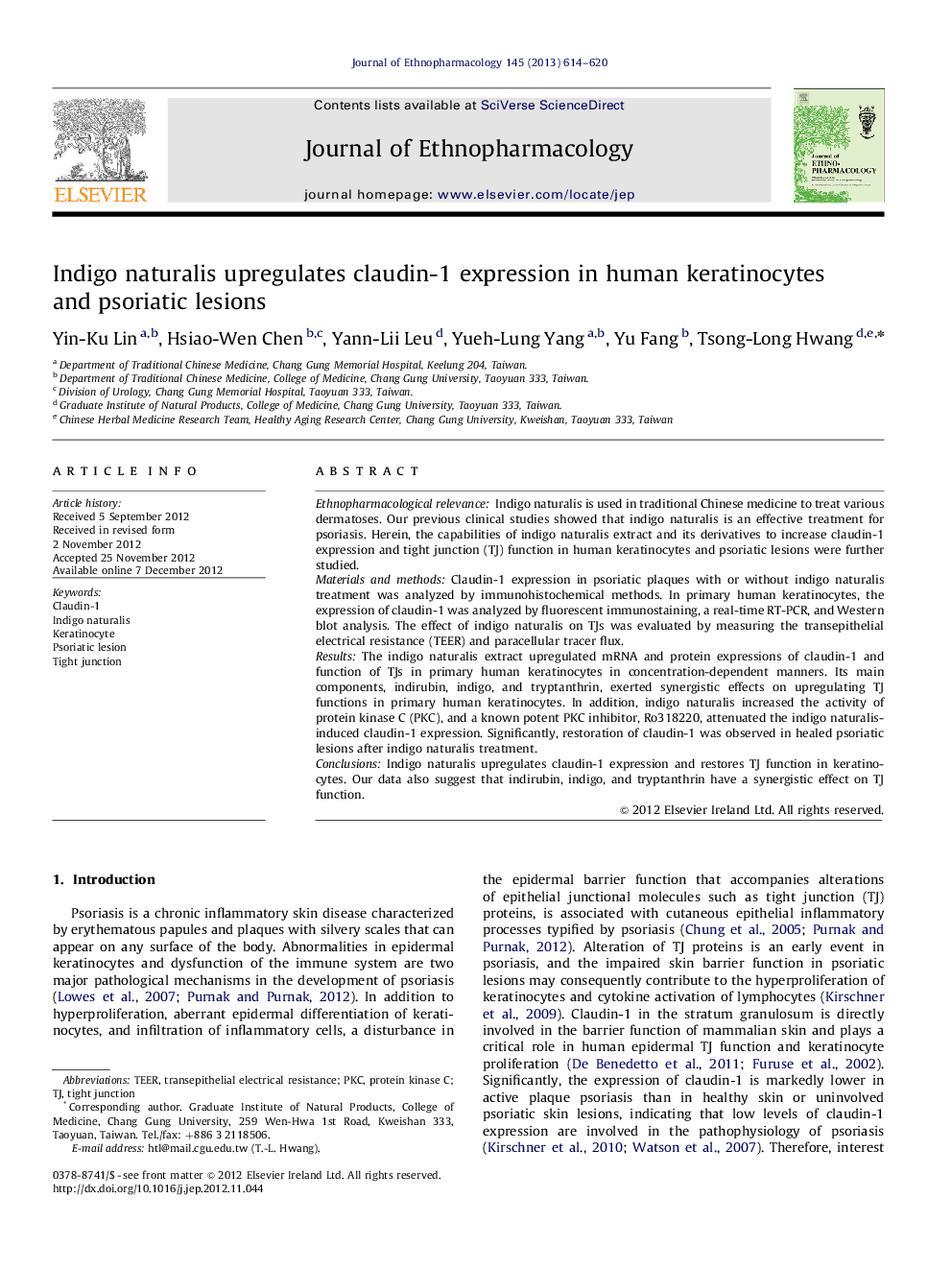| Article ID | Journal | Published Year | Pages | File Type |
|---|---|---|---|---|
| 5837687 | Journal of Ethnopharmacology | 2013 | 7 Pages |
Ethnopharmacological relevanceIndigo naturalis is used in traditional Chinese medicine to treat various dermatoses. Our previous clinical studies showed that indigo naturalis is an effective treatment for psoriasis. Herein, the capabilities of indigo naturalis extract and its derivatives to increase claudin-1 expression and tight junction (TJ) function in human keratinocytes and psoriatic lesions were further studied.Materials and methodsClaudin-1 expression in psoriatic plaques with or without indigo naturalis treatment was analyzed by immunohistochemical methods. In primary human keratinocytes, the expression of claudin-1 was analyzed by fluorescent immunostaining, a real-time RT-PCR, and Western blot analysis. The effect of indigo naturalis on TJs was evaluated by measuring the transepithelial electrical resistance (TEER) and paracellular tracer flux.ResultsThe indigo naturalis extract upregulated mRNA and protein expressions of claudin-1 and function of TJs in primary human keratinocytes in concentration-dependent manners. Its main components, indirubin, indigo, and tryptanthrin, exerted synergistic effects on upregulating TJ functions in primary human keratinocytes. In addition, indigo naturalis increased the activity of protein kinase C (PKC), and a known potent PKC inhibitor, Ro318220, attenuated the indigo naturalis-induced claudin-1 expression. Significantly, restoration of claudin-1 was observed in healed psoriatic lesions after indigo naturalis treatment.ConclusionsIndigo naturalis upregulates claudin-1 expression and restores TJ function in keratinocytes. Our data also suggest that indirubin, indigo, and tryptanthrin have a synergistic effect on TJ function.
Graphical abstractDownload high-res image (524KB)Download full-size image
